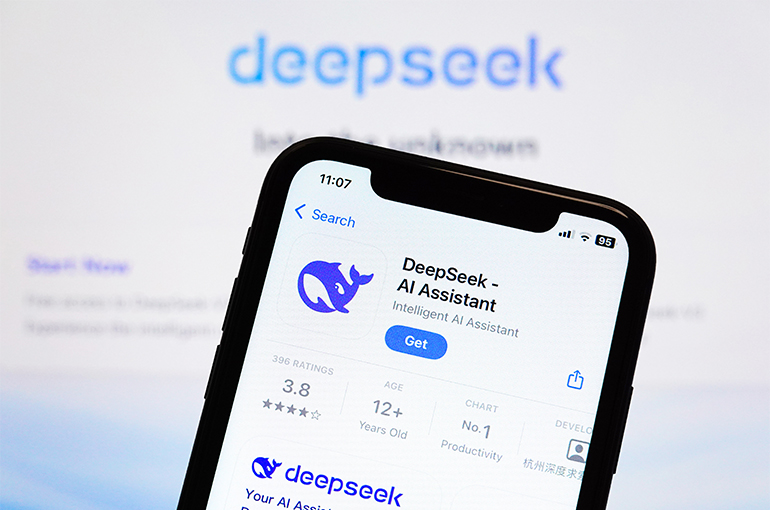 Tencent, ByteDance, Other Chinese Tech Giants Embrace DeepSeek
Tencent, ByteDance, Other Chinese Tech Giants Embrace DeepSeek(Yicai) Feb. 5 -- Chinese tech titans such as Tencent Holdings and ByteDance have released DeepSeek large language models through their cloud service platforms after the Chinese startup's open-source artificial intelligence chatbot DeepSeek-R1 caused a global sensation.
Tencent Cloud TI Platform has launched a one-click deployment function for the full range of DeepSeek models, the Shenzhen-based firm's AI development service platform announced yesterday. Some models can be trialed for free for a limited time, it added.
Volcano Engine, the cloud computing unit of TikTok owner ByteDance, has begun supporting the deployment and invocation of DeepSeek-R1 and DeepSeek-V3, it said on the same day. Baidu and Alibaba Group Holding launched similar functions on their cloud service platforms a day earlier.
Launched on Jan. 20, DeepSeek-R1 topped the free download charts on Apple's App Store in China and the United States on Jan. 27, surpassing OpenAI's ChatGPT in the US and turning heads in Silicon Valley and beyond for its high performance at low cost, positioning it as a major challenger to proprietary models from US rivals.
In addition, DeepSeek-R1's application programming interface service is priced very affordably, with only CNY1 (US 14 cents) per million tokens for input and CNY16 (USD2.20) per million tokens for output, much lower than OpenAI o1's USD15 and USD60, respectively.
The emergence of DeepSeek-R1 may trigger a new round of price cuts across the AI industry. The DeepSeek models offered by Tencent, Baidu, and Alibaba provide free services for a certain period, with the price of the DeepSeek-R1 API service provided by Baidu being only half of DeepSeek's official price.
On Jan. 31, OpenAI launched its first free reasoning model, the o3-mini, likely due to the pressure from Hangzhou-based DeepSeek. Users previously had to pay at least USD20 a month for access to the reasoning function of the California-based company's ChatGPT.
DeepSeek's success has sparked speculation that there may be room for significant reductions in AI training costs. That lead to the shares of Nvidia, a US AI training chips giant, tumbling 17 percent on Jan. 27.
Editors: Dou Shicong, Martin Kadiev